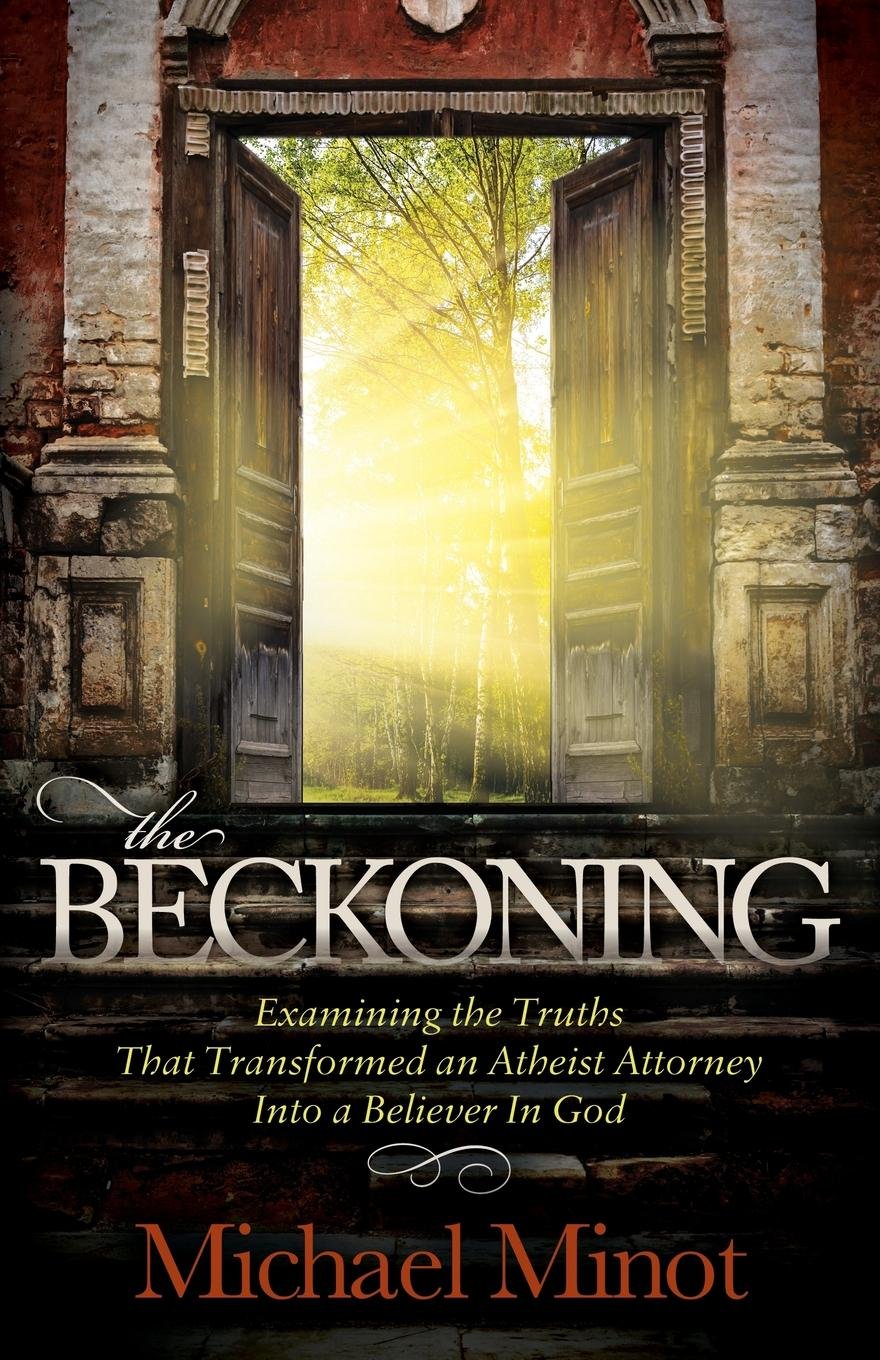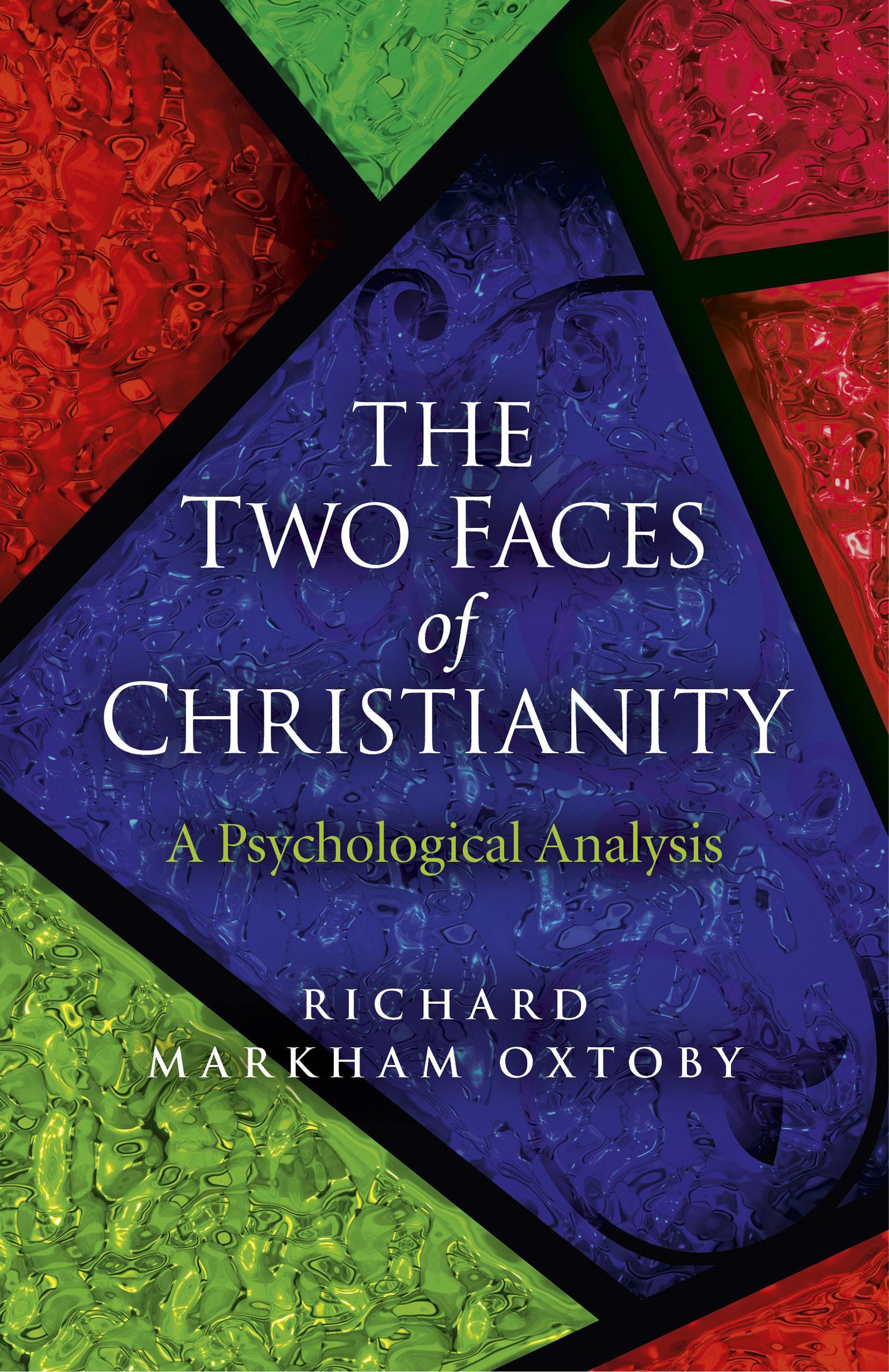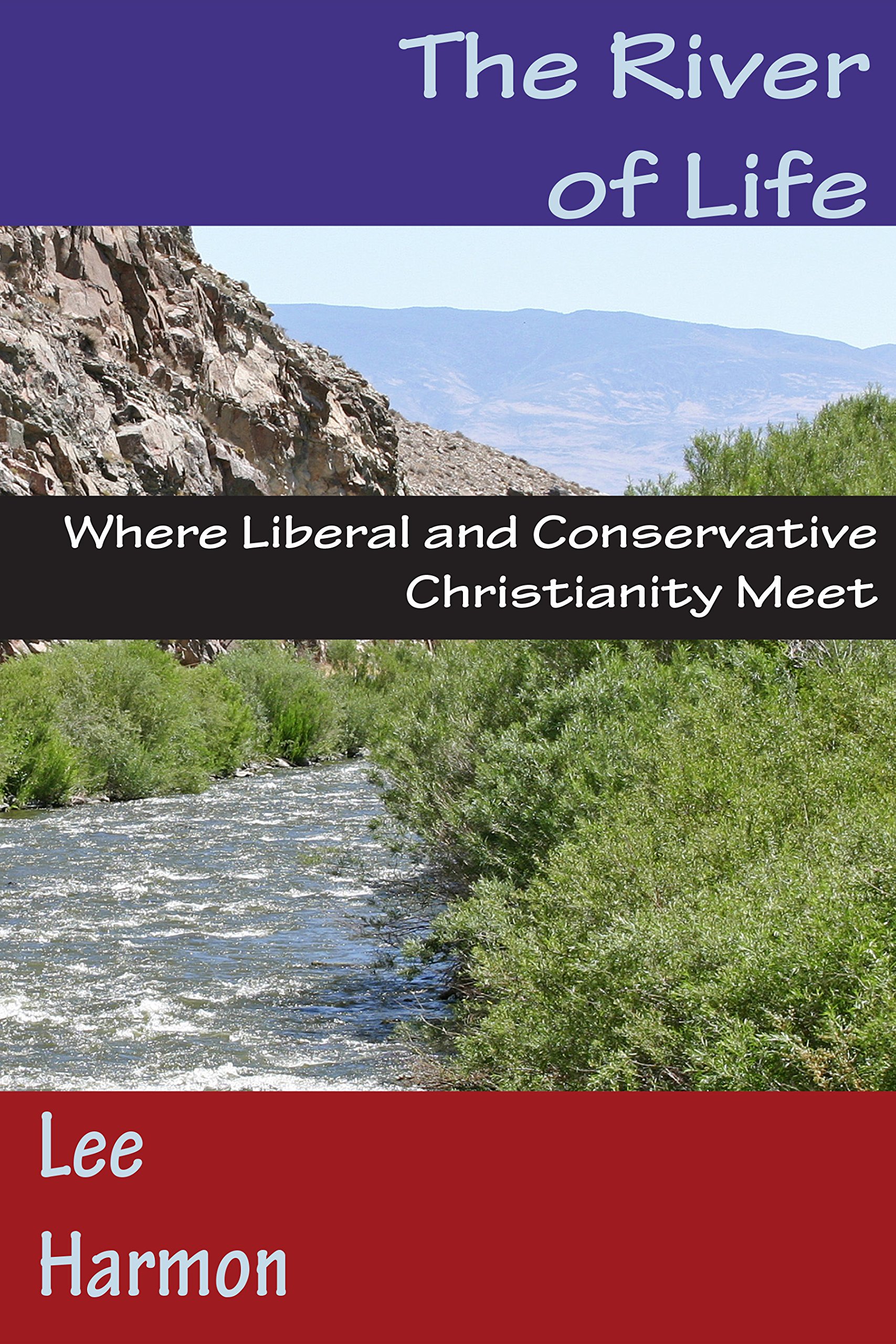Matthew 25:33, Doing Good: The Meaning of Christianity, Part I of II
And he shall set the sheep on his right hand, but the goats on the left. Then shall the King say unto them on his right hand, Come, ye blessed of my Father, inherit the kingdom prepared for you from the foundation of the world:
//My latest book about Liberal Christianity (titled The River of Life) has opened up conversations with a couple people about whether Jesus really did want us to focus on making life better on earth. I think all Christians recognize that we are to do good, but still imagine that their focus should be on eternity, not on this life. This focus fuels the debate regarding works vs. grace, by relegating good works to a minor role.
Why do we think this? Today’s verse tells how the Son of Man will divide all humanity, separating sheep from goats. The sheep enter into life, while the goats are cast into everlasting fire.
What did the goats do wrong? Answer: Nothing at all. They did nothing wrong. They simply didn’t do any good.
For I was an hungred, and ye gave me no meat: I was thirsty, and ye gave me no drink: I was a stranger, and ye took me not in: naked, and ye clothed me not: sick, and in prison, and ye visited me not. Then shall they also answer him, saying, Lord, when saw we thee an hungred, or athirst, or a stranger, or naked, or sick, or in prison, and did not minister unto thee? Then shall he answer them, saying, Verily I say unto you, Inasmuch as ye did it not to one of the least of these, ye did it not to me.
How have we come to believe we’re expected to sit idly by, just believing and enjoying grace? More tomorrow.

Book review: The Beckoning
by Michael Minot
★★★★
Well-written and touching, here’s another “atheist lawyer finds Jesus” story. Minot hooked me early in chapter one with this claim: “I was amazed to learn how the Scriptures read like a lengthy letter from the Creator to the objects of His love.” If Minot could impart this perspective to me, I would finally have what I’ve been searching for: a real reason why apologists should imagine that the God of the Bible is our creator.
The book didn’t quite take me there. In fact, bits of it feel a little presumptuous, even naive. Minot ignores the research of Bible scholars and historians, repeating instead the claims of amateur apologists, such as the idea that the Bible is full of unexplainable prophecies and truth-proving, recently-verified historical claims. Sometimes Minot pits Christianity against evolution or against science in general. There is a chapter-long warning against the wiles of Satan, who often “works through the voices of philosophers, political leaders, educators, scientists, or even those claiming to be experts in religion” … in other words, anyone who has studied a topic enough to know more than we do.
But there are definitely worthwhile sections too, because the journey Minot narrates rings of authenticity. Minot’s story of how he found a church that fits him is heart-felt. His feelings of love and awe and appreciation are surely sincere. He has experienced the goodness and comfort of Christianity, and rightfully wishes to share it with others.
It’s best, then, to read this book as Minot’s personal journey rather than scholarly research. It contains the arguments and discoveries that spoke to a new convert and urged him toward his brand of Christianity. Some readers will find Minot’s perspective convincing and some will not, but all will be inspired by Minot’s 180-degree transition from committed atheist to joyful believer.
Morgan James Publishing, © 2015, 195 pages
ISBN: 978-1-63047-124-8

Luke 17:34-35, The Fate of the Raptured
I tell you, on that night two people will be in one bed; one will be taken and the other left. Two women will be grinding grain together; one will be taken and the other left.
//This is a popular verse among futurists who believe in the rapture. The Gospel of Matthew adds a third verse (sometimes appearing in Luke as well), telling how two people shall be in the field; one taken and the other left.
The idea, of course, is that one of the two is raptured, the other is not. But why do we think this? Where do we get the idea that the one taken is being raptured?
Moving on to the next verse in Luke, we read this:
“Where, Lord?” they asked. He replied, “Where there is a dead body, there the vultures will gather.” –Luke 17:37
I understand the attraction to believing in a rapture. I just don’t see how this passage supports the idea. After Jesus tells the disciples that some will be taken, they ask him where? Where will these people be taken? He answers that they should look for the vultures, because that’s where the dead bodies will be found.
It sure sounds to me like the “taken” are killed. They become the dead bodies, and they don’t seem to be taken anywhere else. So here’s the question: Is this verse referring to a day when lots of people will be killed, or is it saying that when the good guys are raptured, they’ll leave behind dead bodies?

Genesis 9:4, God Allows Eating Meat, Part II of II
But flesh with the life thereof, which is the blood thereof, shall ye not eat.
//Yesterday I quoted the point in scripture where God changed his mind and allowed us to eat meat. It occurs just after the flood, when God changes his rule to let us kill and eat animals. But [1] why did God change his mind, and [2] what stipulation did he put on lifting the restriction?
The key is knowing that in antiquity, life was understood to reside in the blood. Today’s verse answers the second question: the stipulation is that the blood must be preserved and given back to God. That’s the idea behind Kosher slaughtering. This probably answers the first question too. God changed his mind because priests like to eat meat.
It is the priests who benefit from this law. It is they who set the rules of what could be killed and sacrificed (it seems God prefered those animals which are good to eat) and how they were killed (by bringing them to the priests, so the blood could be given back to God in sacrifice).
It’s a brilliant solution and a brilliant compromise. God is happy with the attention; the priests are happy with the free food; the rich who could own animals for food are happy if also a bit frustrated that all the slaughtering had to be done by the priests so they could get their share. Nobody consulted the animals on the matter, but their vote seems not to have mattered.

Genesis 1:29, God Allows Eating Meat, Part I of II
And God said, Behold, I have given you every herb bearing seed, which is upon the face of all the earth, and every tree, in the which is the fruit of a tree yielding seed; to you it shall be for meat.
//Today’s verse seems to be saying that God intended us to be vegetarian. Fruits and vegetables and herbs: these are our “meat.” The same is said in the next verse about animals: they are to eat green herbs for their meat.
Many bible scholars take these verses to mean exactly what they say, that the author(s) was claiming God made the animal kingdom (including us) vegetarian. God’s divine order did not include killing of animals.
The problem is, people like meat. So humankind descended into chaos and began killing and eating. The writers of the Bible liked meat, too. So after Noah’s flood came along, which was supposed to clean up the chaos so we could start over, God conveniently rewrote his law:
Every moving thing that liveth shall be meat for you; even as the green herb have I given you all things.
So now we can all eat animal meat, right? We’re not stuck with just herbs anymore. God gave in and allowed this evil. But he did so with a certain stipulation, which served to make the eating of meat acceptable. Can you guess what the stipulation is?
I’ll give you the answer tomorrow.

Book review: The Two Faces of Christianity
by Richard Markham Oxtoby
★★★★★
Great book, with a needed perspective! If you think you’ve seen Christianity from every angle, try this one. I encourage you to look at it anew from the perspective of a psychologist.
Oxtoby is a Christian. He holds a deep appreciation for the Christian church and believes it has the potential to make a very significant contribution to bringing about the coming of the Kingdom of God on earth. Nevertheless, his beliefs aren’t orthodox. His views will necessarily differ from traditional Christian views because his life’s training opens up truths that cannot jibe with conservative doctrine. He notes that there is a high atheism rate among psychologists, probably because of certain viewpoints perceived by many to be a necessary part of Christianity.
A notable example is the belief that we are all miserable sinners, rotten at the core, and need to be ‘saved’ from the sin into which we were born. Such a perspective is repugnant to those who have studied psychology enough to know of its damaging results. But we needn’t jettison our admiration for Jesus or our sense of God as a spiritual being, immanent in nature, because of a few doctrines gone wrong.
Oxtoby notes that there are two basic religions under one label: [1] An authoritarian religion in which God is seen as an adversary of humankind, over whose eternal destiny he has complete control, and [2] A humanistic religion in which God is a source of positive energy in intimate cooperation with humankind.
Believers in an authoritarian God are deeply focused on our wrongdoing. Guilt is good, for we are flawed beings who need to grovel for forgiveness. Rigid doctrine is necessary, with a proper power organization to enforce the rules. Humanitarian Christianity, on the other hand, affirms the goodness of God’s creation, finds beauty in human diversity, and encourages unconditional love. It takes as a fundamental given that we are fundamentally good. Though Oxtoby holds an appreciation for St. Paul, he compares Paul’s preaching to that of Jesus in order to highlight the difference between authoritarian and humanitarian religion. (Remember, Oxtoby is a psychologist. He is quite capable of loving Paul in both his strengths and weaknesses, recognizing him as a human being with psychological problems and inadequacies like the rest of us!)
I really liked this one.
Christian Alternative Books, © 2014, 392 pages
ISBN: 978-1-78279-104-1

Genesis 25:25, The Red and Hairy Edomites
And the first came out red, all over like an hairy garment; and they called his name Esau.
//Genesis tells us that Jacob and Esau were twin brothers, but that Esau was the firstborn. He came out of the womb all red and hairy. Sounds like an ugly brute, and indeed, his mother Rebecca didn’t think much of him. She preferred his twin brother Jacob, who was “smooth-skinned.”
Jacob is known as the father of the nation of Israel. In fact, his name is later changed to Israel. Esau is known as the father of the Edomites, a nation to the south of Israel. We know of course that no nation can point back to a single man as its head, but that’s no biggie; the story tellers hardly expected us to listen literally.
Indeed, such stories were intended to be enjoyed orally, and it’s easy to imagine the listeners ROFLing. You see, the tellers were Israelites, descendants of Jacob, poking fun at their brutish neighbor Edom. No one in antiquity would have thought differently about the story, for the very names of the characters betray its intent.
Esau is red and hairy. In Hebrew, the word “red” is edom, and the word “hairy” is se’ir. No one could mistake the reference to the Se’ir mountain range running through Edom.
Jacob is smooth-skinned, from the Hebrew word halaq. This is the name of the mountain on Judah’s border with Edom. The two boys are presented as competing mountains, with the more recent nation (Israel) mocking the enemy (Edom). Great storytelling, indeed.

Genesis 2:7, Rain Brings Forth Life, Part II of II
And the LORD God formed man of the dust of the ground, and breathed into his nostrils the breath of life; and man became a living being.
//Yesterday, I quoted verses which indicated that when the earth was first created, no plant life could grow because it had not yet rained, and because there was still no man to till the ground. Nevermind the fact that the same verses indicate there was a mist covering the whole earth; it has to be rain, not mist. And there has to be a man to till the earth.
So in the next verse, God makes a man. Then God is ready to plant a garden, now that there is a man to care for it.
Finally, plant life arrives on earth. But why couldn’t it have happened without rain and without a man?
Well, let me tell you a little about the birds and the bees. In antiquity, it was understood that the man carried the seed; the woman provided the “garden” for the seed to grow. She was the incubator; he provided the life.
How do we know this type of “new life” is what the story is really about? Because the Hebrew word for sperm is also the Hebrew word for rain. These early storytellers were masters of meaningful myth.

Genesis 2:5-6, Rain Brings Forth Life, Part I of II
…before any plant of the field was in the earth and before any herb of the field had grown. For the LORD God had not caused it to rain on the earth, and there was no man to till the ground; but a mist went up from the earth and watered the whole face of the ground.
//Understanding the Bible is harder than you think. We are 2-3000 years removed from the culture which generated these words. Take today’s verse as an example. Nothing could grow on the earth until God made rain. Have you ever wondered why no shrub or plant could grow, when there was a mist (some translations say streams) which watered the whole earth?
Commentators who laugh at this absurdity are missing the point. They are trying to read literally where the words are written metaphorically. They miss the second condition which requires life: “there was no man to till the ground.”
But does this really explain why no life could grow? Who do we men think we are, pretending that God couldn’t grow a single plant without our help?
I’ll let you ponder the mystery, and provide the answer tomorrow.

Chapter 1: Heaven and Hell
It may seem strange that I begin my book at the end. Isn’t the afterlife more of a destination than a starting point?
Well, I’m not really starting here. I’m dismissing the topic up front as being of little importance to Jesus. Let’s get it out of the way.
What I hope to uncover in these pages is the kernel; the real gist of the gospel; the core message that Jesus taught. I think this core should be the focus of our Christian doctrine. When we put Jesus back in his first-century Judaic setting, the Bible reads very differently, and it’s this authentic picture that I hope to convey. The gospel is not about coercing people into heaven or rescuing them from hell. It is not about reward or punishment. It is about the arrival of a different kind of messiah, with an unexpected message.
For hundreds of years before Christ, Jews had dreamed of a rescuing messiah, someone to set the world right again. Someone with the authority and backing of God, who would introduce an era of righteous rule, and who would lift the burden of oppression the Jews had felt off and on for centuries. In this glorious new age, God would come down from heaven and dwell again with mankind. God’s Spirit—which had gone missing for hundreds of years—would again permeate the earth.
According to Christians, the anticipated Messiah came in the first century. The gospel is the good news of the Messiah’s long-awaited arrival two thousand years ago, and how everything—the whole world—would now be transformed under the rule of God. Heaven and hell are confusing, obscure topics that miss the point, and if we can’t set them aside, we’ll miss the point too.
The River of Life, by Lee Harmon
Copyright 2014, Energion Publications

















 354 Circles
354 Circles
 603 Goodreads Friends & Fans
603 Goodreads Friends & Fans

 Hello! I'm an author, historical Jesus scholar, book reviewer, and liberal Christian, which means I appreciate and attempt to exercise the humanitarian teachings of Jesus without getting hung up on any particular supernatural or religious beliefs.
The Bible is a magnificent book that has inspired and spiritually fed generations for thousands of years, and each new century seems to bring a deeper understanding of life’s purpose. This is true of not only Christianity; through the years, our age-old religions are slowly transforming from superstitious rituals into humanitarian philosophies. In short, we are growing up, and I am thrilled to be riding the wave.
I avidly read all thought-provoking religion titles. New authors: I'd love to read and review your book!
Hello! I'm an author, historical Jesus scholar, book reviewer, and liberal Christian, which means I appreciate and attempt to exercise the humanitarian teachings of Jesus without getting hung up on any particular supernatural or religious beliefs.
The Bible is a magnificent book that has inspired and spiritually fed generations for thousands of years, and each new century seems to bring a deeper understanding of life’s purpose. This is true of not only Christianity; through the years, our age-old religions are slowly transforming from superstitious rituals into humanitarian philosophies. In short, we are growing up, and I am thrilled to be riding the wave.
I avidly read all thought-provoking religion titles. New authors: I'd love to read and review your book!
 Hi! While Lee writes the articles and reviews the books, I edit, organize, and maintain the blog. The views expressed here are Lee's but I'm his biggest supporter! :-)
Hi! While Lee writes the articles and reviews the books, I edit, organize, and maintain the blog. The views expressed here are Lee's but I'm his biggest supporter! :-)
Connect With Me!